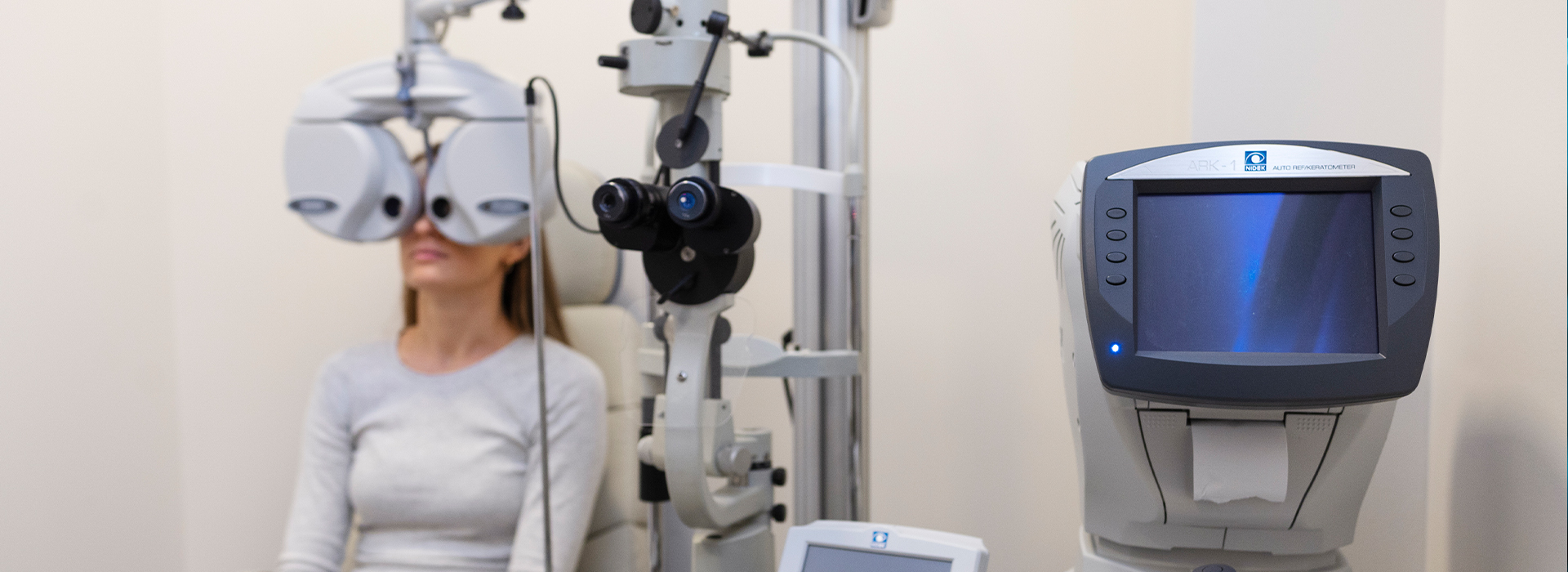Working Time
- 24/7 (General inquiry)
Contact Info
-
Phone: 037638001
Ask the Experts

A Ophthalmology Clinic specializes in the diagnosis, treatment, and management of diseases and conditions related to the eyes and visual system. Ophthalmologists (eye doctors) in these clinics focus on eye health, vision correction, and the prevention and treatment of various eye disorders. Below are the main services provided by an ophthalmology clinic:
1. Routine Eye Exams:
- Comprehensive Eye Examination: A thorough eye exam to check vision health, detect any refractive errors such as myopia (nearsightedness), hyperopia (farsightedness), and astigmatism.
- Fundus Examination: An examination of the retina and optic nerve to detect diseases such as diabetes, high blood pressure, and glaucoma.
- Visual Acuity Testing: Assessing the clarity of vision for each eye separately to diagnose conditions like nearsightedness, farsightedness, or astigmatism.
2. Diagnosis and Treatment of Eye Diseases:
- Eye Infections: Treatment for eye infections such as conjunctivitis (pink eye), keratitis (corneal infection), and blepharitis (eyelid inflammation).
- Dry Eye Syndrome: Treatment for dry eyes, which can cause irritation, redness, and a burning sensation.
- Glaucoma (Optic Nerve Damage): Diagnosis and management of glaucoma, a condition related to increased intraocular pressure that can lead to vision loss if untreated.
- Diabetic Retinopathy: Monitoring and treating damage to the retina caused by diabetes.
3. Surgical Procedures:
- Cataract Surgery: Removing a cloudy lens (cataract) and replacing it with an artificial intraocular lens.
- Refractive Surgery (Laser Eye Surgery): Performing procedures like LASIK or PRK to correct refractive errors such as myopia, hyperopia, or astigmatism.
- Eyelid Surgery (Blepharoplasty): Correcting issues with drooping eyelids, or removing small tumors from the eyelid.
4. Pediatric Ophthalmology:
- Vision Issues in Children: Diagnosing and treating conditions such as strabismus (crossed eyes), amblyopia (lazy eye), and refractive errors in children.
- Eye Screening for Children: Conducting vision tests for early detection of conditions like nearsightedness, farsightedness, or astigmatism in young children.
5. Vision Correction Solutions:
- Eyeglasses and Contact Lenses: Prescribing eyeglasses or contact lenses to correct refractive errors.
- Therapeutic Contact Lenses: Prescribing specialized lenses for conditions such as dry eyes or after eye surgery.
- Contact Lens Fitting: Custom fitting of contact lenses for comfort and effectiveness.
6. Diagnosis and Treatment of Retinal Diseases:
- Retinal Disorders: Managing conditions affecting the retina, such as retinal detachment, macular degeneration, and diabetic retinopathy.
- Age-Related Macular Degeneration (AMD): Diagnosis and treatment of macular degeneration, which affects central vision.
- Diabetic Retinopathy: Regular eye examinations and treatments for retinal changes due to diabetes.
7. Neurological and Nerve-Related Eye Issues:
- Strabismus (Crossed Eyes): Diagnosing and treating strabismus, a condition where the eyes do not align properly.
- Optic Nerve Problems: Assessing and treating conditions affecting the optic nerve that can lead to vision loss.
8. Low Vision Support:
- Support for Visually Impaired Patients: Providing guidance and tools for patients with partial or complete vision loss, such as magnifying devices or specialized training for daily activities.
- Assistive Technologies: Recommending technologies and devices that aid patients with low vision, such as electronic magnifiers.
9. Ocular Tumors:
- Diagnosis of Eye Tumors: Identifying and treating eye tumors, whether benign or malignant, in the eyelid, retina, or optic nerve.
- Cancer Treatment: Providing treatment, including surgery or chemotherapy, for eye-related cancers.
10. Geriatric Eye Care:
- Elderly Eye Health: Routine eye exams for older adults to detect conditions such as cataracts, macular degeneration, and glaucoma, which are common in aging populations.
- Dry Eye Management: Addressing dry eye syndrome, which is more common in older adults.
11. Diagnosis and Treatment of Systemic Conditions Affecting the Eyes:
- Eye Problems from Systemic Diseases: Monitoring eye health in patients with conditions like diabetes, high blood pressure, and autoimmune disorders, which can impact vision.
- Hypertension-Related Eye Diseases: Monitoring for eye damage caused by high blood pressure, such as hypertensive retinopathy.
12. Pre- and Post-Surgical Care:
- Pre-Surgery Consultation: Preparing patients for eye surgeries, such as LASIK, cataract surgery, or any other eye-related procedures.
- Post-Surgery Care: Providing follow-up care after eye surgery to monitor recovery and manage any complications.
13. Intraocular Pressure Testing:
- Eye Pressure Measurement: Regular testing of intraocular pressure to detect early signs of glaucoma and other related conditions.
14. Vision Rehabilitation:
- Vision Therapy: Offering therapy to improve eye coordination and tracking, especially in cases of amblyopia or strabismus.
- Visual Training: Teaching patients how to adapt to vision loss or manage low vision with appropriate tools and strategies.
15. Emergency Eye Care:
- Eye Injuries: Treating eye injuries such as foreign bodies, cuts, or chemical burns.
- Eye Emergencies: Addressing urgent eye conditions, including sudden vision loss, eye infections, or trauma.
An Ophthalmology Clinic provides comprehensive eye care, ranging from routine vision exams to specialized treatments and surgeries. Ophthalmologists not only address common vision problems like nearsightedness and farsightedness, but they also diagnose and treat serious eye diseases such as glaucoma, macular degeneration, and retinal diseases. Their aim is to maintain and restore vision, while also offering preventive care to ensure long-term eye health.
